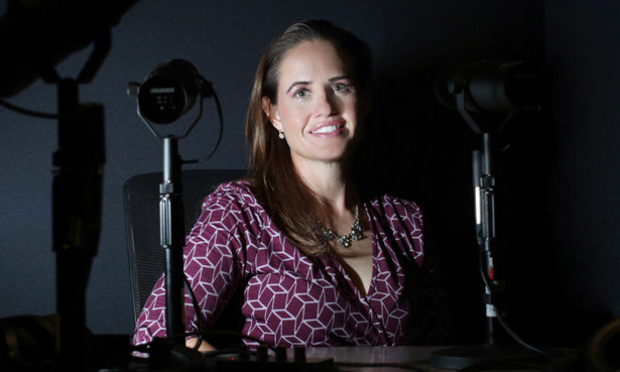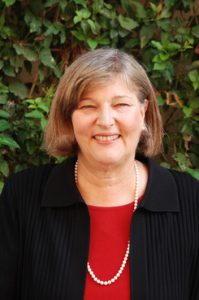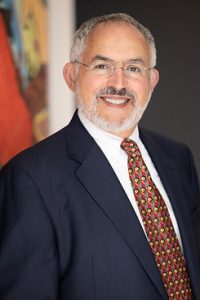Change at the Start: How Law Firm Origination Credit Still Hurts In-House Counsel Diversity Focus
How law firm origination credit still hurts in-house counsel's diversity focus.
September 02, 2019 at 01:00 AM
14 minute read
 Jeanine Wright, Chief Administrative Officer & Chief Legal Officer of Simplecast, in Los Angeles. July 30, 2019.
Jeanine Wright, Chief Administrative Officer & Chief Legal Officer of Simplecast, in Los Angeles. July 30, 2019.
Who receives origination credit at a law firm still impedes in-house counsel's efforts to promote diversity and inclusion within the firms they work with—almost a decade after major bar associations began publicly addressing the issue and a decade and a half since a top corporate legal department tackled the issue head-on.
The American Bar Association Commission on Women in the Profession, Minority Corporate Counsel Association and Project for Attorney Retention released a report in 2010 that found women lawyers and lawyers of color had been bullied, threatened or intimidated over origination credit, or the pay for the entire or large portion of the work that goes to the lawyers who originally brought the client to the firm.
The age-old system usually requires lawyers to receive origination credit on a permanent basis. But the typical lawyer tends to be a white male who most likely received the guidance and opportunity to meet with potential clients and bring their business to the firms, though sometimes even years later a woman or person of color may be completing that client's work.
Now, months shy of 2020, the issue of origination credit is still spreading quietly to general counsel, as the community at large may not know that the relationship partner they are seeking for work may not be the lawyer receiving the bulk of compensation for their matters.
Jeanine Wright, chief legal and administrative officer of Los Angeles-based podcast marketing startup Simplecast, shared on a recent Association of Corporate Counsel Southern California panel that it's an issue she keeps in mind when hiring outside counsel. In fact, once she learned about the issue, Wright revamped her selection process in 2015 while she was general counsel at Los Angeles-based credit underwriter ZestFinance. She started distributing a survey on the diversity points she was looking for in a firm.
She said she inserted the survey in her requests for proposals. It asked lawyers if they identified as a person of color, veteran, openly LGBT or disabled, and added which lawyers receive origination credit and billing credit for her company's matters. She then included a question about the firms' percentage of women, people of color and white men and how the compensation broke down within their positions as associates to partners with descriptions of any firm diversity and inclusion initiatives.
 Michelle Banks, Senior Adviser & Executive Coach with BarkerGilmore.
Michelle Banks, Senior Adviser & Executive Coach with BarkerGilmore."When I put this together, I thought there's no way they're going to respond to these questions; they'll get back to me citing privacy concerns, so I was pessimistic about what I was going to get," Wright said. "Every single one of them responded to the survey."
After reading the responses, Wright said she realized the column asking about origination credit and billing credit listed names she did not recognize.
"Two [firms] included people on the list that I had never heard of that were getting origination credit for my matters, so I was surprised by the category column in particular," she said.
One woman, she said, worked at a major Silicon Valley law firm whom she knew as the point of contact on her matters but was not receiving origination credit.
"This person I never met or spoken to [is receiving origination credit], and I asked who is this person, and I asked around internally, and it turned out that person very early on—before the company was a series A—had helped with early financial decisions," Wright said, adding she inherited that relationship from the previous general counsel. "That person back in the day originated the relationship, even though I hadn't met that person or had [that person] worked on our matters for years, so that person brought the relationship to the firm, that was the person getting the origination credit for my matters."
Upon this revelation, Wright said she tried to figure out a way the woman partner she knew could get the credit. "'Do I rehire you so you're getting the full or partial credit?' I had to advocate for her," she said. "She didn't have the power to advocate for herself."
Wright threatened to fire the firm and only come back if the woman partner received the credit, but she said the partner didn't want Wright to take those measures. So Wright said she made a call to the unfamiliar partner who was receiving the origination credit and the woman partner. After the call, the woman partner, whom Wright said still works at the firm, began getting a share of the origination credit.
In ALM's 2019 Diversity Scorecard measuring the full-time partners who identify in nonwhite racial categories, Fragomen topped the list but did not have any black partners.
The 55 firms surveyed had at least 20% minority attorneys, up from 43 last year, and three had at least 20% minority partners, down from five. Asian American lawyers comprise 7.3% of Big Law while Hispanic lawyers are at 4.1%, with both groups growing 1% since 2011. Black lawyers are underrepresented the most, in comparison to the U.S. population.
The idea of the updated survey, which Wright still uses, came from Michelle Banks, the former general counsel of San Francisco-based clothing giant Gap Inc. They met at an ACC Power of the Purse event that gives negotiation tips for women lawyers. While at Gap, Banks says diversity and inclusion was a priority when hiring outside law firms during her involvement with the ABA's Women in Profession commission.
"If you're working with a woman or person of color on your account, you think they're the important person, they're the person you call, they're the person you give new work, it turns out it could be a man you don't know well or who's not working on it currently who could be receiving the credits," says Banks, now a BarkerGilmore consultant. "Many general counsel who worked at law firms a long time ago don't know you should really ask questions: Who's the relationship partner and origination partner? Is it shared? Is the person you value getting credit for the relationship? It was surprising to me when I was at Gap when we were asking, who was getting credit on their accounts."
On the ABA commission, Banks worked with Patricia Gillette, a former Orrick, Herrington & Sutcliffe partner who said she received origination credit while at the firm and understood the big law compensation structure.
 Patricia Gillette
Patricia Gillette"It ensconces lawyers in a position and rewards them over and over again, and it creates silos instead of teams," says Gillette, now a JAMS neutral in northern California. "You can get credit for the rest of your life; it doesn't give room for others. Women and minorities may be on my cases, but I get the credit. It's been a big issue."
Considered to be one of the architects of outside counsel diversity and inclusion, former Walmart general counsel Thomas Mars says a lawyer in his department brought up the issue by signing him up to be a speaker at an ABA Minority Counsel Committee event in 2002.
Serving in the top lawyer position from 2002 to 2009, Mars' legal department focused on the relationship partner. In 2005, Walmart published a report on its outside counsel hiring strategy.
The report announced the largest buyer of legal services at the time gave notice to its top 100 law firms, ranked by legal services invoices, to show evidence of institutional diversity or their working relationship would end. Walmart requested from the firms statistics on nonwhite lawyers and women lawyers: the number they comprise and their titles, their retention rates, percentage of them promoted to partner, and their leadership roles.
Walmart also wanted to know how active the firms were in diversity and inclusion organizations and the initiatives connected to the firms. The company then asked for a new slate of relationship partners, which had to include one woman and one lawyer of color who are guaranteed to receive pay for the matter. By September 2005, Walmart claimed out of the 100 firms, 40 new relationship partners identifying as women lawyers and lawyers of color were handling $60 million of legal work.
"Everyone came out a winner with the exception of a couple law firms, for whatever reason they thought we weren't serious or didn't embrace diversity," Mars says. "I think everyone was a winner. It was an absolute life-changing experience for me. It changed who my friends are, how I deal with people, how I approach leadership."
With Walmart's demand, Mars says several major law firms revamped their diversity and inclusion goals through adding more programs and promoting more lawyers on the diversity spectrum to partner. And as law firms focused on diversity, so did Walmart.
"The headhunters couldn't produce high-quality lawyers the way we needed. I came back from one of the diversity conferences with an epiphany: I'm meeting all these high-quality, diverse lawyers. I thought that was the thing to do," he says. "We started hiring some super talented lawyers out of these minority bar associations and learned a lot from being there. We wouldn't just fly in and go out. … We had an agenda when we were going."
When Mars assumed the general counsel role, he says the legal department had 66 members in 2002, with 56 at its headquarters in Bentonville, Arkansas, alone, and it grew to 176 when he was promoted to chief administrative officer in 2009. He left in 2010 and recently launched his own sports law firm.
While Walmart changed how it dealt with outside counsel, the model failed to be replicated on a large scale across other corporations. Sandra Yamate, CEO of the Institute for Inclusion in the Legal Profession in Chicago, says it's difficult to pinpoint why the message didn't go farther.
 Fred Alvarez, with Coblentz Patch Duffy & Bass.
Fred Alvarez, with Coblentz Patch Duffy & Bass."We always found it interesting that when Walmart moved that business, we didn't see a lot of other corporate clients follow suit," Yamate says. "Over the years, we heard anecdotes of individual efforts that they make sure they get origination credit for the lawyer they're working with. [They'll say,] 'Of course we're going to do that,' but it wouldn't end up happening."
Marci Rubin, former deputy general counsel at Wells Fargo & Co., says when she worked in-house for the bank she saw firsthand how origination credit affected women lawyers and lawyers of color. She says years ago, a colleague asked for a real estate lawyer referral and later realized the Latino equity partner completing the work was not receiving the credit. In fact, she says two white male lawyers were the credit recipients as they were the relationship partners. So she called the Latino partner to vouch for the origination credit, but she said the lawyer didn't want to stir any trouble.
"That's a very typical thing that happens," says Rubin, who's also a former executive director of California Minority Counsel Program. "There are really different philosophies in-house and different philosophies of what law firms say and what they do. I know attorneys who care about diversity deeply, but in-house counsel say they can't get involved in the business of the law firm and can't say where credit goes.
"If you say minority lawyers [must be] on my case, you're getting involved with the business of the law firm, you're saying who to put on your deal or your matters. There are two things even with credit: credit as the power, or the status that comes with credit, can be two different things."
At the California Minority Counsel Program where Rubin retired from her directorial position in 2015, she said the issue would come up in closed sessions.
"A woman stood up and said, 'You don't know what's really going on with the credit. I know clients told I'm getting credit and I don't get credit,'" Rubin says of one instance. "Story after story, partners at major firms around the country are telling us, 'I get the credit, [but they] make it so uncomfortable, I give it back to the partners.'"
Rubin adds that like many in-house counsel, she depended on preferred lawyers rather than the law firms, so when a lawyer left a law firm, she followed that lawyer to the next firm. But during those moves, she said she would see the differences in titles as, for example, a lawyer was a partner but now an equity partner or senior counsel or senior associate.
"It's not a nice and clean issue; it's a very big concern for those who truly care about diversifying the profession," she says. "It's a big driver why lawyers and associates leave firms."
Experts say law firms measure origination credit and other compensation factors differently. A recent ALM Intelligence survey documented that out of 47 Am Law 200 firms, 14% revamped their origination credit policies in the past five years, while another 8.5% said they plan to do so in the next year.
 Tom Mars. Photo by John Disney/Daily Report.
Tom Mars. Photo by John Disney/Daily Report.Compensation has always been a contentious issue, especially of late with some law firms facing major lawsuits from former female lawyers. Jones Day, for example, was recently slapped with a $200 million gender bias lawsuit by three named female plaintiffs, including a Facebook in-house counsel. The plaintiffs claim the firm's "black box" compensation model, which is a closed system to discourage lawyers from discussing pay between each other, has hurt pay opportunities for women lawyers.
"Firms have an infinite number of ways that they measure origination credit and some don't measure it at all," says Fred Alvarez, partner at Coblentz Patch Duffy & Bass in San Francisco. "I don't think clients have to stick their noses on how it needs to get done or get too engaged on how things get measured. I think they need to measure more why work comes to law firms and the role people are playing in their relationship and, if the firm knows that, they can apply that to their own compensation system. There's a disconnect there."
In-house counsel and experts say transparency of who will receive compensation for their matters helps them support their diversity and inclusion goals but add they have to ask firms for the information rather than assuming their relationship partner is receiving origination credit. And there is doubt if law firms are sharing truthful information with corporate legal departments.
"It still surprises me to meet and talk to people who haven't thought about this," says Banks, formerly of Gap. "It depends on how big your company is. If you work with a lot of law firms and ask a lot of questions, you're more likely to think about it. It's really hard for solo GCs to focus on this. If you're a lawyer at a small company, you don't have a lot time to focus on this. … In part, it depends on time and resources who are familiar with it."
This content has been archived. It is available through our partners, LexisNexis® and Bloomberg Law.
To view this content, please continue to their sites.
Not a Lexis Subscriber?
Subscribe Now
Not a Bloomberg Law Subscriber?
Subscribe Now
NOT FOR REPRINT
© 2025 ALM Global, LLC, All Rights Reserved. Request academic re-use from www.copyright.com. All other uses, submit a request to [email protected]. For more information visit Asset & Logo Licensing.
You Might Like
View All
'The Unheard of Superpower': How Women's Soft Skills Can Drive Success in Negotiations

Tales From the Trenches: What Outside Counsel Do That GCs Find Inexcusable

Venus Williams Tells WIPL Crowd: 'Living Your Dreams Should Be Easy'

The 2024 WIPL Awards: Law Firm Mentor and Mentee Collaboration
Trending Stories
Who Got The Work
Michael G. Bongiorno, Andrew Scott Dulberg and Elizabeth E. Driscoll from Wilmer Cutler Pickering Hale and Dorr have stepped in to represent Symbotic Inc., an A.I.-enabled technology platform that focuses on increasing supply chain efficiency, and other defendants in a pending shareholder derivative lawsuit. The case, filed Oct. 2 in Massachusetts District Court by the Brown Law Firm on behalf of Stephen Austen, accuses certain officers and directors of misleading investors in regard to Symbotic's potential for margin growth by failing to disclose that the company was not equipped to timely deploy its systems or manage expenses through project delays. The case, assigned to U.S. District Judge Nathaniel M. Gorton, is 1:24-cv-12522, Austen v. Cohen et al.
Who Got The Work
Edmund Polubinski and Marie Killmond of Davis Polk & Wardwell have entered appearances for data platform software development company MongoDB and other defendants in a pending shareholder derivative lawsuit. The action, filed Oct. 7 in New York Southern District Court by the Brown Law Firm, accuses the company's directors and/or officers of falsely expressing confidence in the company’s restructuring of its sales incentive plan and downplaying the severity of decreases in its upfront commitments. The case is 1:24-cv-07594, Roy v. Ittycheria et al.
Who Got The Work
Amy O. Bruchs and Kurt F. Ellison of Michael Best & Friedrich have entered appearances for Epic Systems Corp. in a pending employment discrimination lawsuit. The suit was filed Sept. 7 in Wisconsin Western District Court by Levine Eisberner LLC and Siri & Glimstad on behalf of a project manager who claims that he was wrongfully terminated after applying for a religious exemption to the defendant's COVID-19 vaccine mandate. The case, assigned to U.S. Magistrate Judge Anita Marie Boor, is 3:24-cv-00630, Secker, Nathan v. Epic Systems Corporation.
Who Got The Work
David X. Sullivan, Thomas J. Finn and Gregory A. Hall from McCarter & English have entered appearances for Sunrun Installation Services in a pending civil rights lawsuit. The complaint was filed Sept. 4 in Connecticut District Court by attorney Robert M. Berke on behalf of former employee George Edward Steins, who was arrested and charged with employing an unregistered home improvement salesperson. The complaint alleges that had Sunrun informed the Connecticut Department of Consumer Protection that the plaintiff's employment had ended in 2017 and that he no longer held Sunrun's home improvement contractor license, he would not have been hit with charges, which were dismissed in May 2024. The case, assigned to U.S. District Judge Jeffrey A. Meyer, is 3:24-cv-01423, Steins v. Sunrun, Inc. et al.
Who Got The Work
Greenberg Traurig shareholder Joshua L. Raskin has entered an appearance for boohoo.com UK Ltd. in a pending patent infringement lawsuit. The suit, filed Sept. 3 in Texas Eastern District Court by Rozier Hardt McDonough on behalf of Alto Dynamics, asserts five patents related to an online shopping platform. The case, assigned to U.S. District Judge Rodney Gilstrap, is 2:24-cv-00719, Alto Dynamics, LLC v. boohoo.com UK Limited.
Featured Firms
Law Offices of Gary Martin Hays & Associates, P.C.
(470) 294-1674
Law Offices of Mark E. Salomone
(857) 444-6468
Smith & Hassler
(713) 739-1250






